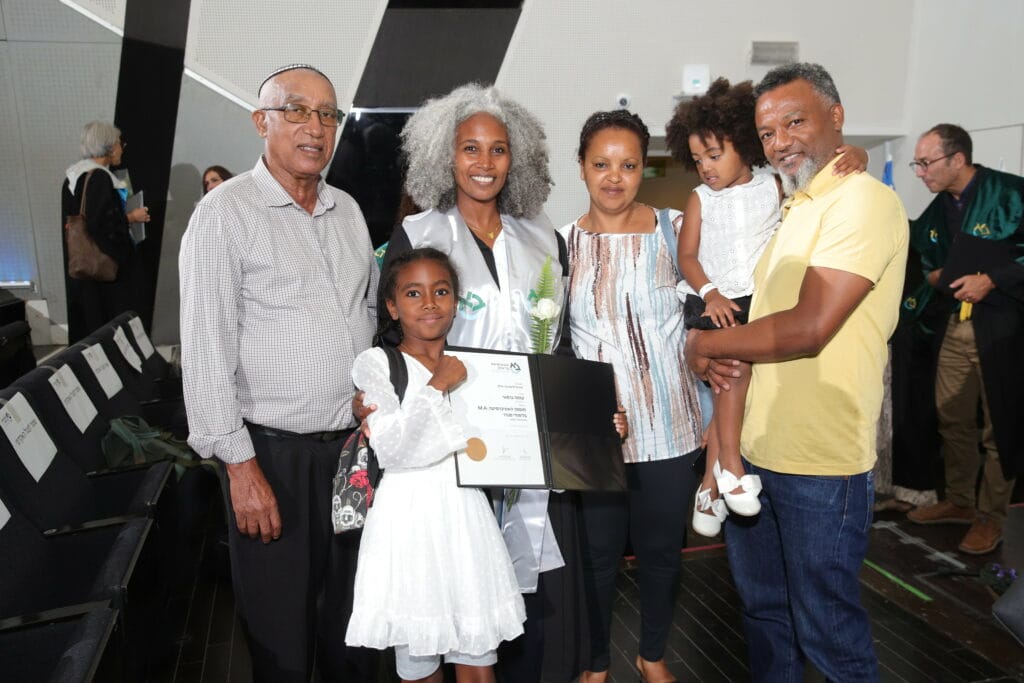Women in migrant communities in Israel have particular and pressing challenges. Some of them came to Israel alone, some of them are single parents or face extremely difficult life circumstances, often engaged in demanding physical work for meager wages as they try to support their families. Studies show that in the migration process, especially migration that results from the necessity to flee, women are an extremely vulnerable group. The ‘Life Seekers’ project focuses on building female solidarity and leadership, increasing opportunities, and providing support for women in the migrant community.
Project summary
Status:
Students:
Tzipora Guttman, MA
Mentorship:
Drs. Gili Hertel and Rachel Levy Hertz, Gender Studies
Impact Fund investment:
NIS 177,800
Ripple effect:
Trailblazing women’s group created, 25 leaders rippling positively through the refugee community.

Student entrepreneur
Tzipora Guttman is an MA graduate in Public Policy at the Hebrew University, student in the Gender Studies program at Bar-Ilan University, graduate of the Mandel School for Educational Leadership, lecturer at Ono College, and social entrepreneur.
End of year summary
We realized that even from the initial stages, the leader of the process needed to be a member of the community. And so, we found Alam: asylum seeker, mother of five, and manager of a virtual community of about 1,200 parents from an online community. Alam joined us in the planning phase, helped form the group, and functioned as the group coordinator and leader.
The program was divided into four stages:
Stage 1– Building the group and looking inside
We realized that it is not possible to create a women’s group before its members spoke about why they left their countries, and to process the traumas they endured on their way to Israel. To this aim, we opened a group that functioned as a safe social and emotional space that would allow the women to open up about things they had not dared to talk about until now – and give them tools to deal with it. Many of the participants carried shame from trauma they endured on their way to Israel, and part of the meeting was devoted to how sharing can turn shame into strength and well-being.
Stage 2– Entrepreneurship
The second phase was action oriented: The large group was divided into sub-groups, with the goal that each group would establish a project that would promote self-realization while also contributing to the community. The underlying idea is that self-realization and personal development makes for more effective agents of change. During the course they learned about leadership, entrepreneurship, and how to logistically bring an idea to fruition: project planning, budgeting, and execution. They also met with external professionals who guided them and answered their questions.
Stage 3-Professional learning and specialization
For each initiative, we developed professional workshops focused on the areas of interest and needs identified in the second stage.
Stage 4– Digital literacy
A digital literacy course will open after the end of Stage 3. Its purpose is to prepare the women for the changing world of work, with an emphasis on digital literacy and the development of the skills needed for integration into the labor market. The construction of the syllabus and the contents were built together with representatives from the communities and adapted to their specific needs. In addition, the knowledge they will acquire in the course will help them to better understand their children, whose knowledge in digital areas exceeds their own.
At the end of Stage 4 we plan to continue working with the group in collaboration with other associations and the municipality of Tel Aviv.
To honor the birthday of Jane Stern Lebell, please consider contributing to The Jane Stern Lebell Community Impact Fund.
